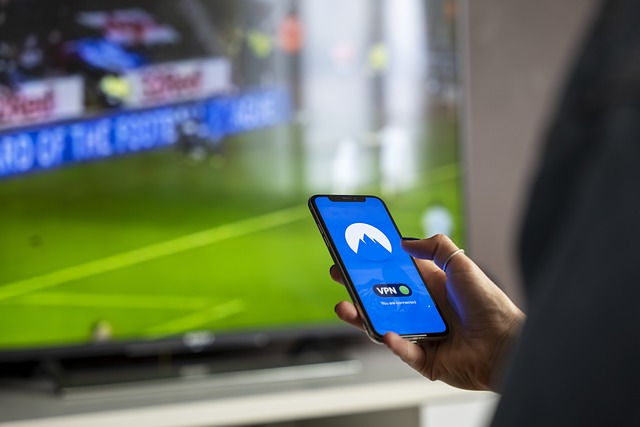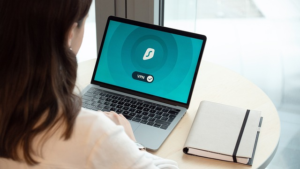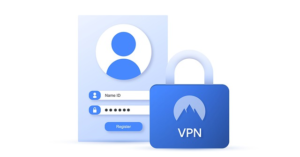
BERK CAN/Shutterstock.com
You’ve probably seen ads for free VPNs and wondered why you shouldn’t use one of those rather than their paid counterparts. After all, you can’t beat the price of $0. Let’s compare free vs. paid VPNs and see why exactly you shouldn’t trust free VPNs, at least not in most cases.
Are There Good Free VPNs?
When talking about free VPNs, there are two types: free plans of legitimate, trustworthy VPN services and other services that exist purely as a free VPN. The first group is generally safe to use and includes entries from our roundup of the best VPNs, like ProtonVPN, Windscribe, or Hide.me. We’ll call these free VPN plans or free tiers.
The second group, however, isn’t nearly as safe and may even be outright hazardous to use. Generally speaking, they exist as free apps you can download from the Google Play Store or the Apple App Store. They’ll often advertise like all untrustworthy VPNs do, promising too much and doing too little. These are actual free VPNs, ones that rarely will have a paid tier.
This, of course, raises the question on how they make money. As with all things, if a service is free, it means you’re the product being sold or, in this particular case, your data. Your personal information is worth a lot of money to advertisers, not to mention scammers and other denizens of the dark web. Most, if not all, the free VPN apps you’ll find exist purely to collect and sell your data.
We’ll go into a bit more detail about how that works further down, but for now, know one thing: these free VPN apps exist to sell data. To add insult to injury, the vast majority are very bad at being VPNs. In fact, it’s probably safer to surf without a VPN than use one of these services. Whatever you do, do not use them.
Free Tiers of Paid VPNs
Before we examine these dodgy free VPNs more closely, though, let’s go over some of the quirks of the free plans that some—very few, if we’re honest—reputable VPNs offer. You’re perfectly safe when using these services as long as the VPN itself is good. Examples of legitimate VPNs with a free plan include PrivadoVPN as well as those we mentioned earlier.
However, there are some limitations on the use of these free tiers. After all, if they were as good as the paid plans, nobody would bother paying. For one, you’re usually limited by the number of VPN servers and their locations. ProtonVPN, for example, only lets you connect to three locations across the world (the U.S., the Netherlands, and Japan), while Windscribe limits you to ten countries.
Another limitation to free plans is that there’s almost always a bandwidth cap, a limit to the amount of data you can send and receive through the VPN. In most cases, this cap is 10GB, which is enough if you’re just surfing, but it won’t cover the needs of most streamers or torrenters.
The exception is ProtonVPN, which has no bandwidth cap, but will instead limit speeds on the free plan. Add to this the load on its free servers (one of the most important factors in VPN slowdown) and using ProtonVPN for free means your internet will slow to a crawl. Then again, you get what you pay for.
Free VPN Security Issues
With the safe but limited free tiers out of the way, let’s take a look at the actual free VPNs. As we mentioned earlier, there are several problems with these, which we’ll break down into two categories: security and privacy.
When it comes to security, free VPNs have a problem in that they’re not really VPNs, but instead just glorified proxies. As we explain in our article comparing VPNs and proxies, the main difference between these two tools is that VPNs encrypt your connection, while proxies do not—at least not to the same extent.
The result is an app that may seem like it works like a VPN—it reroutes your traffic and spoofs your IP address—but very much isn’t one. Where a VPN offers some measure of anonymity and makes it much harder to track you, a proxy, and by extension most free VPNs, leave you wide open to tracking.
It’s not a huge deal if you’re just trying to access a different country’s version of a site (though it’ll likely fail to get through), but it’s a massive problem to people living in authoritarian countries that want to escape internet censorship.
Privacy Issues
Another good reason not to use free VPNs is that they will use your data for marketing purposes, or even worse. There have been several scandals involving free VPNs, the worst of which is probably that of Hola VPN, a simple browser extension you can install to unlock different regions’ websites.
It doesn’t work too well, though, at least for its customers. Usually, the site you’re trying to visit will stall out or the connection will fail entirely. However, for Hola itself, it works great as its browser extension usurps your bandwidth and resells it to third parties—who in the past have used it for all kinds of shady purposes, including botnet attacks.
A more prosaic example is Betternet, which has been found by the Australian Commonwealth Scientific and Industrial Research Organisation to contain trackers to gather users’ information and sell it. The price of free, in this case, is knowledge of your browsing behavior.
Companies like this do the opposite of what VPNs are supposed to do, and use your data for their own purposes rather than protect it. To avoid scams like this, make sure to either sign up for the free tier of a reputable VPN, or just buy a subscription—some excellent VPNs cost less than $50 per year—a lot less than what a scam will cost you.
Source: https://www.howtogeek.com/830645/free-vpn-vs-paid-vpn/


